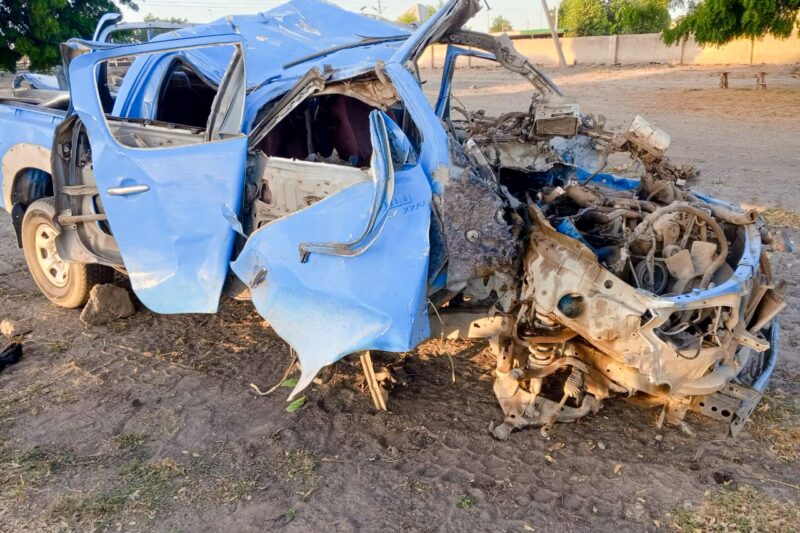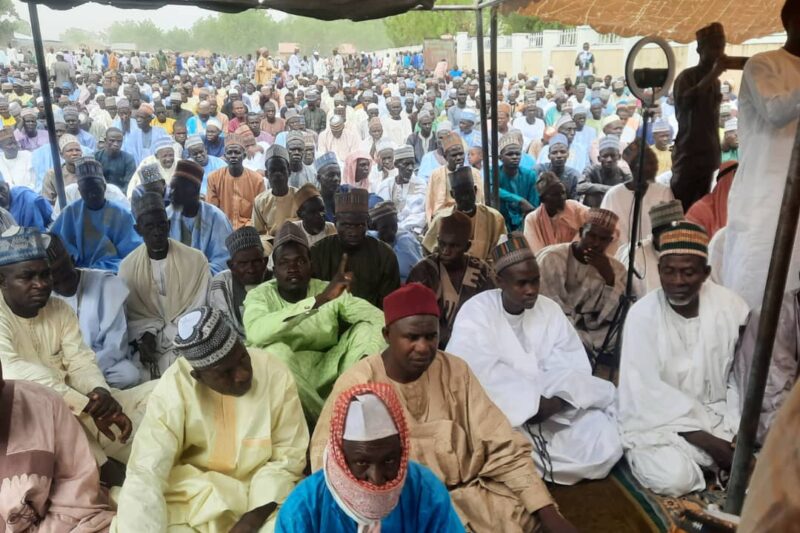Almajiranci is the oldest form of Islamic education in northern Nigeria and it involves sending children – some as young as three – to different states across the nation to learn and gain Qur’anic knowledge.
Mostly, because of the lack of security, hunger and no shelter, the children are sent away on their own by their parents.
Some almajirai in Maiduguri shared their stories with RNI reporter Amina Abbagana.
“I feel so sad at night seeing other children at home with their parents. Unfortunately, I have nowhere to stay and I am forced to sleep outside, despite the cold weather,” said Bakura Ba’ana.
“The weather is cold and it sometimes is hardly bearable for us. But we have no choice. We fetch wood and light fires. We sleep on rubber mats around the fire to keep ourselves warm and to avoid catching a cold or catarrh,” Bakura Ba’ana said.
“I can remember, in 2019, Maiduguri had a seriously cold season. So, after we finished our study for the day, because the weather was so cold, we decided to use a kerosene lamp and firewood at the same time. Unfortunately, my cousin, Ba’ana, was badly burnt and was hospitalised for months. After that his father took him to stay with him.”
Seven-year-old Habib Musa said because of the cold weather people were closing their gates early. This contributed to hunger among the almajirai. “We often sleep with empty bellies,” he said.
Muhammed Ibrahim said parents should be more considerate. “Most of the almajirai live like vagabonds, running about helter-skelter, without financial, health or livelihood support.”
He begged the government and non-governmental organisations – as well as wealthy individuals – to come to their aid.
A situation report released last year by ReliefWeb, a humanitarian information service provided by the United Nations Office for the Coordination of Humanitarian Affairs (OCHA), said for generations, children of school-going age had roamed the streets in a quest for survival.
“As an age-old tradition, these kids are popularly called ‘almajiri’ – children from poor homes usually sent to Islamic boarding schools. Formal education remains a far cry for thousands of these children.
“Put into perspective, Nigeria has about 13.42 million out-of-school children. In West Africa, Nigeria accounts for 45% of out-of-school children; 69% of the out-of-school children in Nigeria are from northern Nigeria, with 60% of them comprising girls.”
The report said that the destruction of schools by insurgents, forced displacement and the volatile nature of the region had grossly affected accessibility to primary education in the area.
It said that over the years, the almajiri programme had co-existed alongside the formal school system but it had failed to be subsumed into the formal education sector. Nigeria’s former president, Goodluck Jonathan, reportedly spent about 15 billion naira in building almajiri schools in an effort to integrate basic education into the almajiri system.
“There have been reports that there are structures built for the purpose that have either been used for conventional education or lay waste because the pupils have gone back to the old ways of street begging.”
The report said that since the start of the COVID-19 pandemic, when free movement was banned and social distancing greatly promoted, the almajiri way of life had been greatly threatened. Hundreds of almajiri children had been deported across different states in a bid to flatten the spread of the Coronavirus. In some cases, some of them had tested positive to COVID-19.
- Males seeking Islam knowledge are called almajiri and females are called almajira; the plural is almajirai.
The system encourages adults to leave parental responsibilities to the Islamic school.
Colloquially, the term has expanded to refer to any young person who begs on the streets and does not attend secular school.
Almajirai are children, usually from poor rural backgrounds, who leave their hometowns to study Islamic learning with malammai, teachers of the Qur’an.
The almajirai usually begin their studies between the ages of three and 12.








